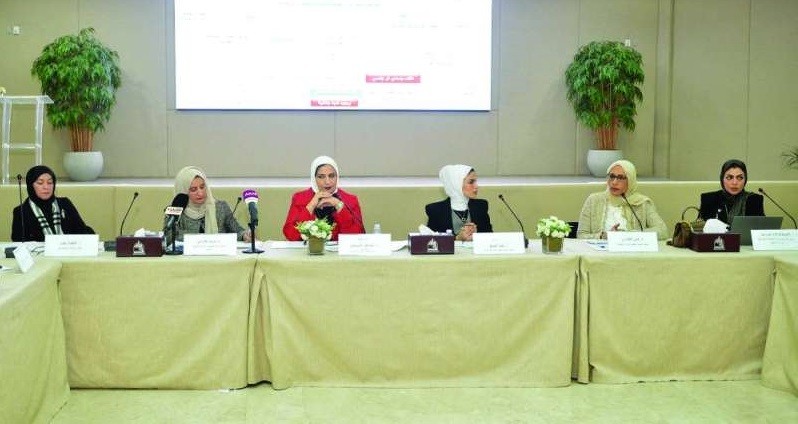18/01/2024
18/01/2024

KUWAIT CITY, Jan 18: To advocate for the implementation of the Law on Protection from Domestic Violence in Kuwait, the Women's Cultural and Social Society organized a panel discussion involving key stakeholders. Held at the association's headquarters in Khalidiya, the session aimed to shed light on the existing shortcomings in addressing domestic violence and to propel initiatives to rectify them.
The panel held two days ago, emphasized the pivotal role of the Ministry of Information in raising awareness about the law and providing protection to individuals. It also underscored the importance of the Ministry of Education in educating youth on human rights principles, fostering respect for freedom, rights, and safety, and discouraging violence as a behavior, regardless of age or gender.
Dr. Maryam Al-Azmi, Secretary-General of the Supreme Council for Family Affairs, disclosed that the session focused on activating the Domestic Violence Law and its executive regulations. She highlighted the Council's commitment to the law and its efforts to align with international standards, aiming to enhance Kuwait's standing on women's issues and domestic violence.
Addressing challenges faced by the Council in law implementation, Al-Azmi acknowledged that flaws and challenges are inherent in any new legislation. One such challenge involved establishing the Domestic Violence Fund, an issue under discussion with the Women and Family Affairs Committee of the National Assembly. Coordination meetings with the Ministry of Finance are ongoing to address concerns raised by the Ministry and establish the fund.
Haifa Al-Mousa, a member of the Women's Cultural Association, emphasized that while the law is in effect, there is still work to be done to protect families from domestic violence. She stressed the association's commitment to addressing the problem and creating awareness, considering violence as a contagious issue that must be actively confronted.
Dr. Mona Al-Khawari, Director of the Child Protection Office at the Ministry of Health, highlighted the inclusion of children in the Domestic Violence Law. She expressed the office's dedication to establishing childhood centers, providing shelter for abused children, and ensuring comprehensive care, including psychological rehabilitation.
The discussion session concluded with several recommendations, including efforts to strengthen the reporting mechanism, increase community awareness, and enhance cooperation among official bodies and the Supreme Family Council. Emphasis was placed on the role of the Ministry of Education in tackling violence and the significance of media portrayal in shaping societal perceptions.
Al-Azmi clarified that the law applies to all family members, not exclusively women, and encompasses various family structures. Statistics were deemed variable and unstable, and temporary shelter homes were acknowledged as vital for cases requiring extended care.
Representatives from the Supreme Council for Family Affairs, Ministry of Interior, Ministry of Health, Ministry of Education, Ministry of Foreign Affairs, National Assembly, and the Office of Social Development participated in the discussion.


